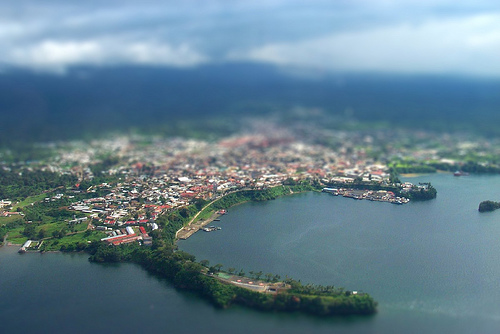Internet Snapshot: Equatorial Guinea
According to 2010 estimates, Equatorial Guinea generates a GDP of nearly $37,000 per capita – a sum 74 times greater than that found in Zimbabwe. Therefore, why does Equatorial Guinea, a nation with one of the highest GDP’s per capita in the world (and the highest in Africa) have some of the worst levels of Internet connectivity?
For one, Teodoro Obiang Nguema Mbasogo, President for over 30 years and one of the wealthiest heads of state is not known for thrift. Despite the discovery of oil in 1996, relatively little of the eventual profits have found their way toward infrastructure development. Expensive press releases are utilized to bolster international reputation. Case in point: an August 23, 2011 release titled “Equatorial Guinea Excels in Infrastructure Development” touts efforts to strengthen the nation’s infrastructure by the end of the decade. A bold statement, for sure, but to Equatorial Guinea’s credit, the nation has seen major relative advancements since 2008.
In the news:
- World Bank backbone program to give $215 million to a variety of African nations, including Equatorial Guinea. The goal is to strengthen regional broadband backbones and reduce the cost of ICT services in Central Africa. {AfricaNews, 10/21/09, http://www.africanews.com/site/C_Africa_215m_for_internet_development/list_messages/27537}
- The nation does not have an active Internet censorship, but news of North African uprisings was limited in early 2011. {afrol News, 2/11/11, http://www.afrol.com/articles/37303}
- Media was also censored ahead of the AU Summit in June 2011.
- In late 2009, Huawei had plans for WiMAX to serve Malabo. {WiMAXmaps.org, 7/29/11, http://wimaxmaps.org/}
Statistics:
- No national ICT policy.
- 14,400 Internet users as of Jun/10, 2.2% of the population, per ITU. http://www.internetworldstats.com/africa.htm
- 12,540 Facebook users on August 10, 2011. http://www.socialbakers.com/facebook-statistics/
- 32 total domains. http://www.webhosting.info/domains/country_stats/?pi=3&ob=TOTAL&oo=DESC
- Full Internet access in 1997 via France. http://www.nsrc.org/db/lookup/provider.php?id=890201863083:497423456&fromISO=GQ
- Satellite Internet access still very common. http://www.satsig.net/cgi-bin/yabb/YaBB.pl?board=ivsat-af;action=display;num=1292763927
- In 2008, a report suggested that 2% of Internet users accessed the web via iPhone. {CNN Fortune, 2/2/08http://tech.fortune.cnn.com/2008/02/02/the-iphones-of-equatorial-guinea/}
- President Teodoro Obiang Nguema Mbasogo does not have an official Facebook page. {Facebook, 8/11/11, http://www.facebook.com/#!/pages/Teodoro-Obiang-Nguema-Mbasogo/107293592634173}
A 2010 supplement to Foreign Policy (PDF) provides some insight into where Equatorial Guinea is heading:
- Minister of Transport,Technology & IT Vicente Ehate Tomi says that although EG’s telecommunications sector is still in its baby stages.
- Further initiatives are underway such as the installation of a national backbone cable and connection to the ACE network that connects South Africa with Europe.
- Mobile operator Hits entered the country after the 2008 telecommunications law opened the door to new operators,breaking the monopoly of the country’s single operator at the time, Getesa.
- This competition has since seen Getesa, the country’s first operator, drop its prices at least three times and launch its first marketing campaign in 20 years.
- Goal of Hits is 80% penetration rate in 3 years.
Equatorial Guinea has the financial resources and geographical location to have a high level of Internet penetration. The “Horizon 2020” plan will further strengthen infrastructure, health/social services, and education. Increasing telecoms competition will help bring mobile services to the country. However, successful development hinges on an opaque government. An October 2010 video of President Obiang speaking to Equatorial Guinea’s 2020 developmental goals does little to suggest the nation will no longer be considered an emerging nation in nine years.













 Twitter
Twitter Facebook
Facebook Pinterest
Pinterest
[…] The pattern is different in each country, reflecting local priorities in silencing the independent press. In Belarus and Syria, the Net is home to unlawful but state-sanctioned hacking and surveillance. In Saudi Arabia, Internet users are subject to the same harsh controls that are applied to traditional news media. In Uzbekistan, Internet access is growing, but censorship is still draconian. In Equatorial Guinea, Internet and mobile censorship is minimal, but so is the infrastructure. […]
ue55f6800 Great post $37,000 aint that bad!